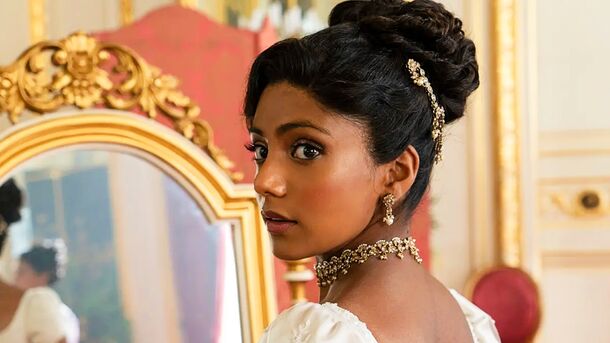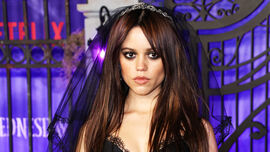Bridgerton's Diverse Casting is Not Enough: It's Still a Show About White Family After All

A few years ago, legendary showrunner Shonda Rhimes decided to produce a new show. It would be a period-specific, corsets-and-lace romance, but – get this – it would feature a diverse ensemble of characters, instead of the all-white casts that these productions have always depended on. Characters of colour would finally be given a gorgeously-costumed place in a soapy period romance.
That show was called Still Star-Crossed, it was a sequel to Romeo and Juliet, and it was cancelled after seven episodes.
Three years later, Bridgerton blew the doors off of Netflix by capitalizing on all the same ideas: a diverse cast romping sexily through period-specific shenanigans (though Bridgerton takes place in the Regency era), outrageously gorgeous costumes, and juicy intrigues. Like Still Star Crossed before it, Bridgerton is produced by Shonda Rhimes and combines old-timey plots with modern-day politics.
But unlike its predecessor, which centered around a Black actress (the magnificent Lashana Lynch before her James Bond or Marvel days), Bridgerton revolves around a white family.
While the diversity is still there – and generally well handled – it still feels like a step back. The actors of colour on the show, like Season One's Simon or Season Two's Kate, may be well-developed romantic leads, but their place in the story is still defined by their relationships with the white Bridgerton siblings.
It would be wrong to suggest that Bridgerton's runaway success depended on giving the focus to a white family. There are a lot of reasons that Still Star Crossed was a misfire; there wasn't enough action, the fight scenes were laughable, and what should have been a show focussed on a juicy love triangle instead dragged on and on with political machinations that left audiences cold.
Still, for those who think that Bridgerton is the last word in inclusive casting, it's worth remembering that productions centering characters of colour are rarely given an equal chance to succeed.
ABC only gave Still Star Crossed three episodes to prove itself before banishing it to the wasteland of Saturday night programming, practically guaranteeing a swift death for the Shakespearean drama before it had a chance to evolve.
As much as I love Bridgerton, I can't wait for the show that comes after: one that gives the starring role to actresses like Lashana Lynch, while letting the white characters be the ones defined, for once, by their proximity to the characters of colour.
